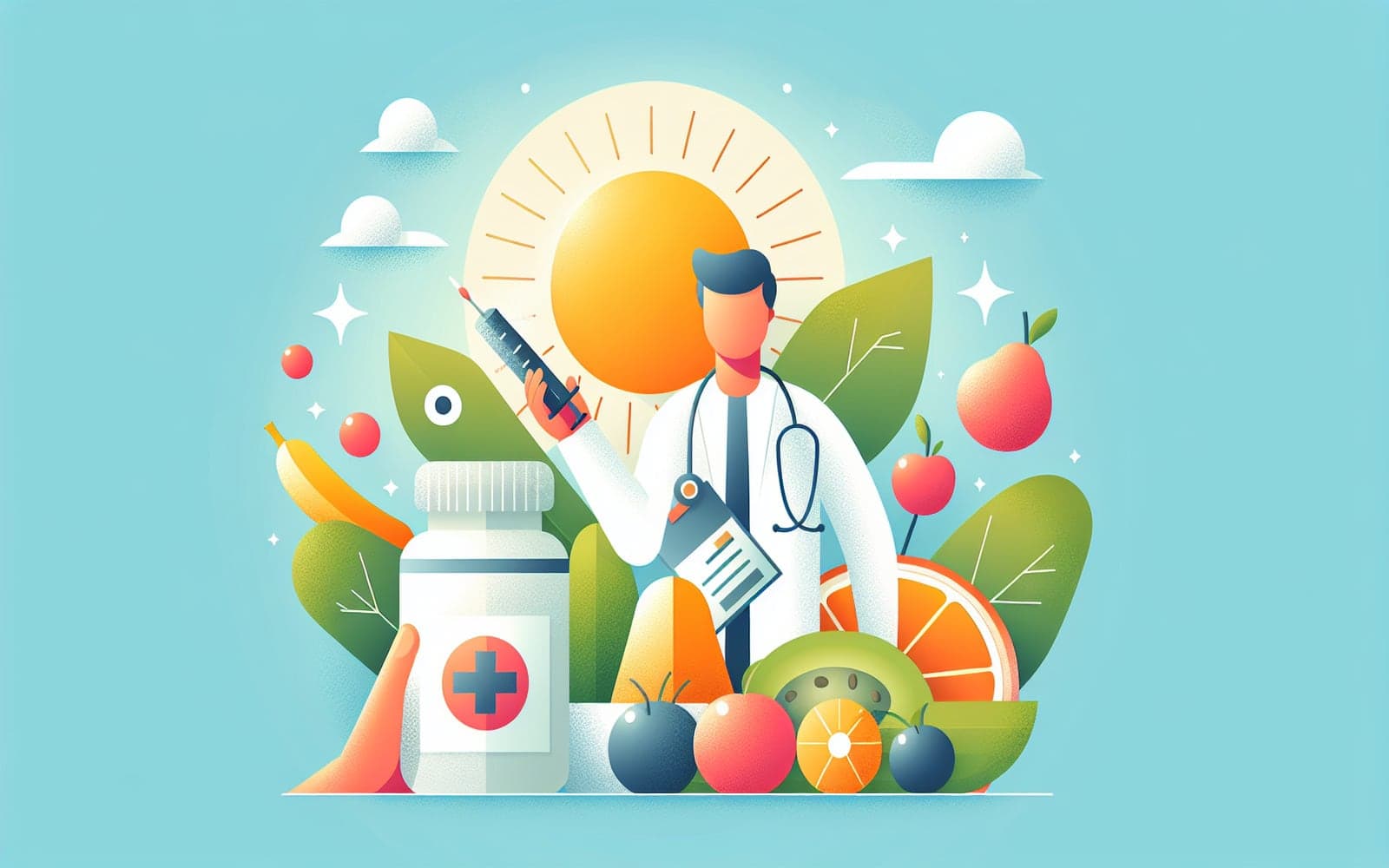Can Diet Help Combat Photosensitivity?
Published: Mar 02, 2024
Explore how your food choices might impact your skin's reaction to sunlight and potentially alleviate photosensitivity symptoms.
Contents
Understanding Photosensitivity
Photosensitivity refers to an unusual reaction of the skin when exposed to sunlight, often resulting in rashes or burns. This condition can affect anyone, especially those with certain skin disorders or genetic conditions. Understanding photosensitivity is crucial for identifying how lifestyle changes, including diet, can make a difference.
The Role of Antioxidants
Antioxidants found in food can help protect the skin from sun damage by neutralizing harmful free radicals. Foods rich in vitamins C and E, such as citrus fruits and nuts, can provide a natural shield. Incorporating these foods into your diet could be beneficial for those dealing with photosensitivity.

Hydration and Skin Health
Staying hydrated is essential for maintaining healthy skin, particularly for individuals with photosensitivity. Drinking plenty of water helps keep the skin supple and may reduce the severity of reactions. Additionally, consuming water-rich foods like cucumbers and watermelon can support hydration efforts.
Frequently Asked Questions
Yes, foods high in antioxidants may help protect the skin.
Hydration keeps the skin healthy and may lessen reactions.
Vitamins C and E are particularly helpful.
Key Takeaways
Could a diet rich in antioxidants and hydration be your key to managing photosensitivity?
Get started by discussing dietary changes with Doctronic, your AI doctor!Related Articles
References
Lim HW, Hawk JL. Evaluation of the photosensitive patient. In: Photodermatology, Informa Healthcare, 2007.
Always discuss health information with your healthcare provider.

